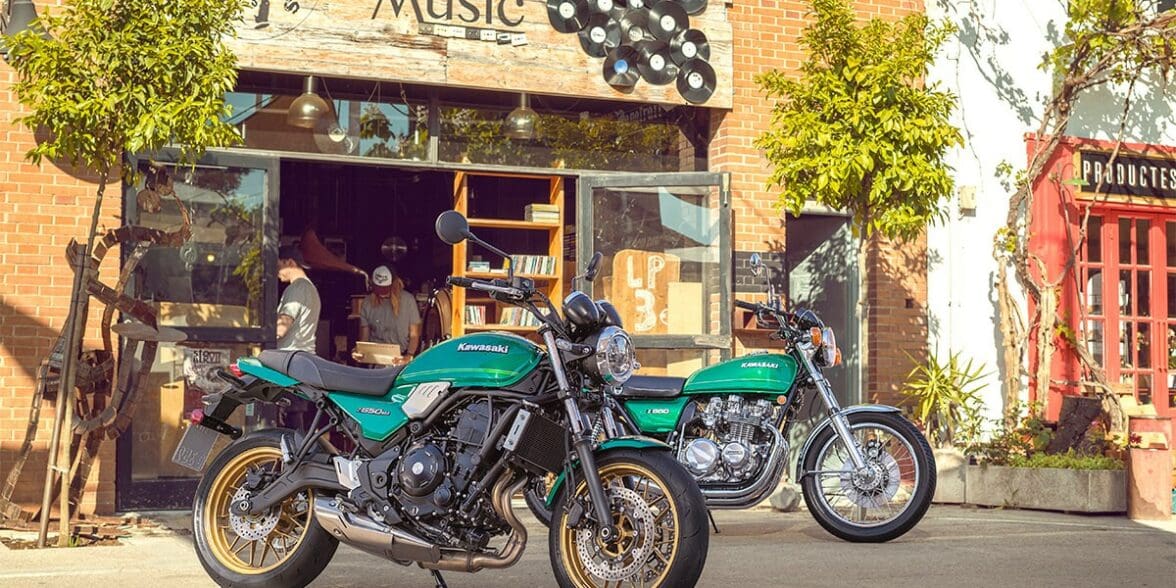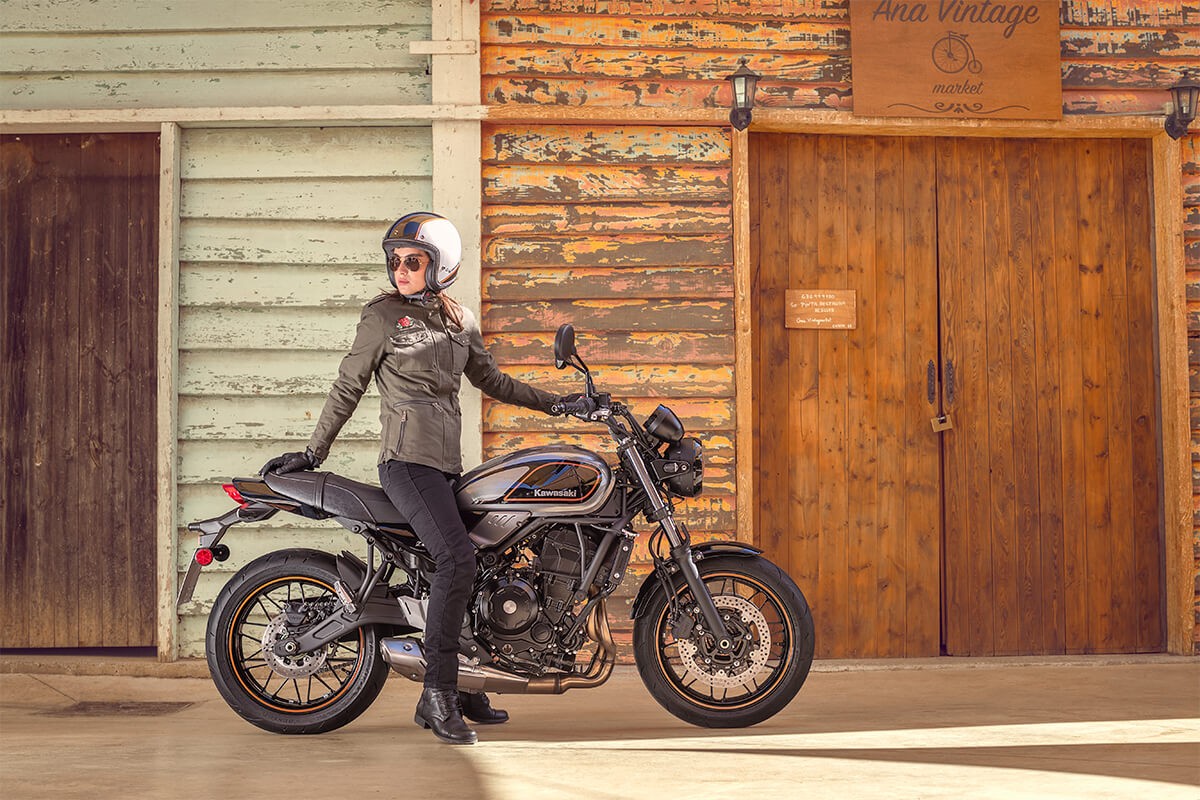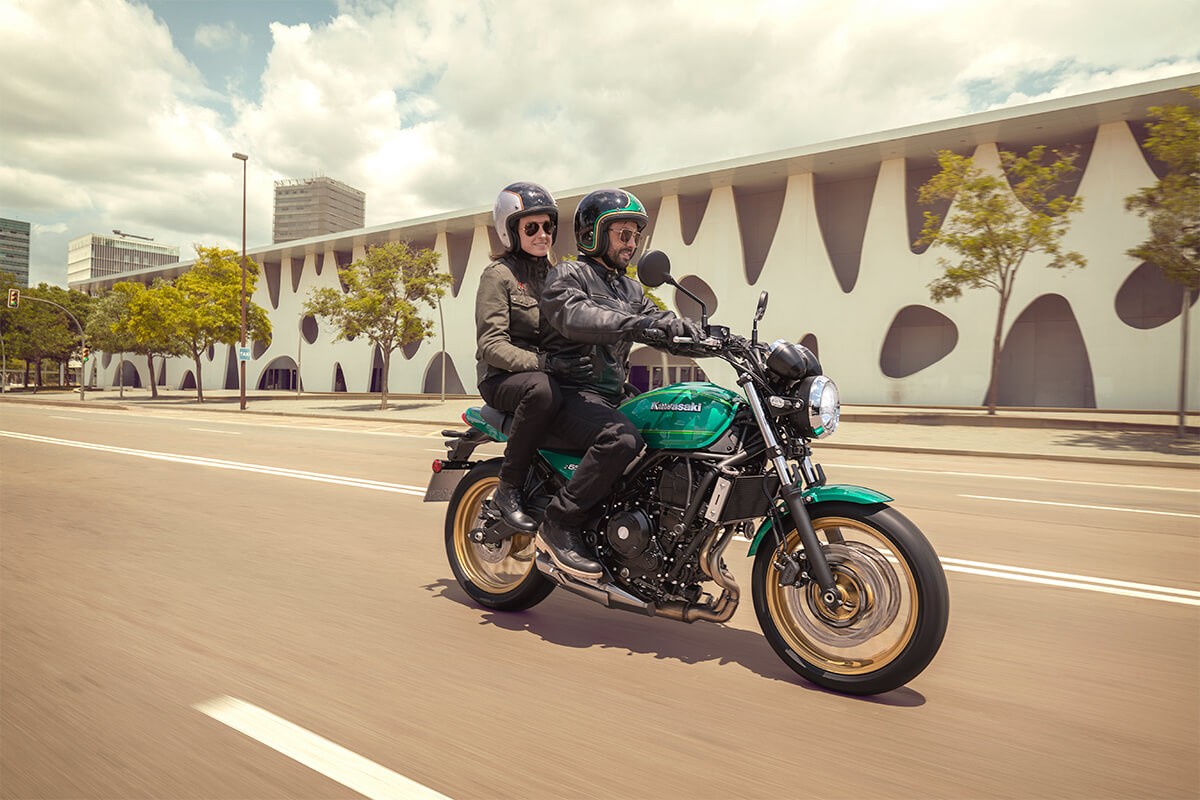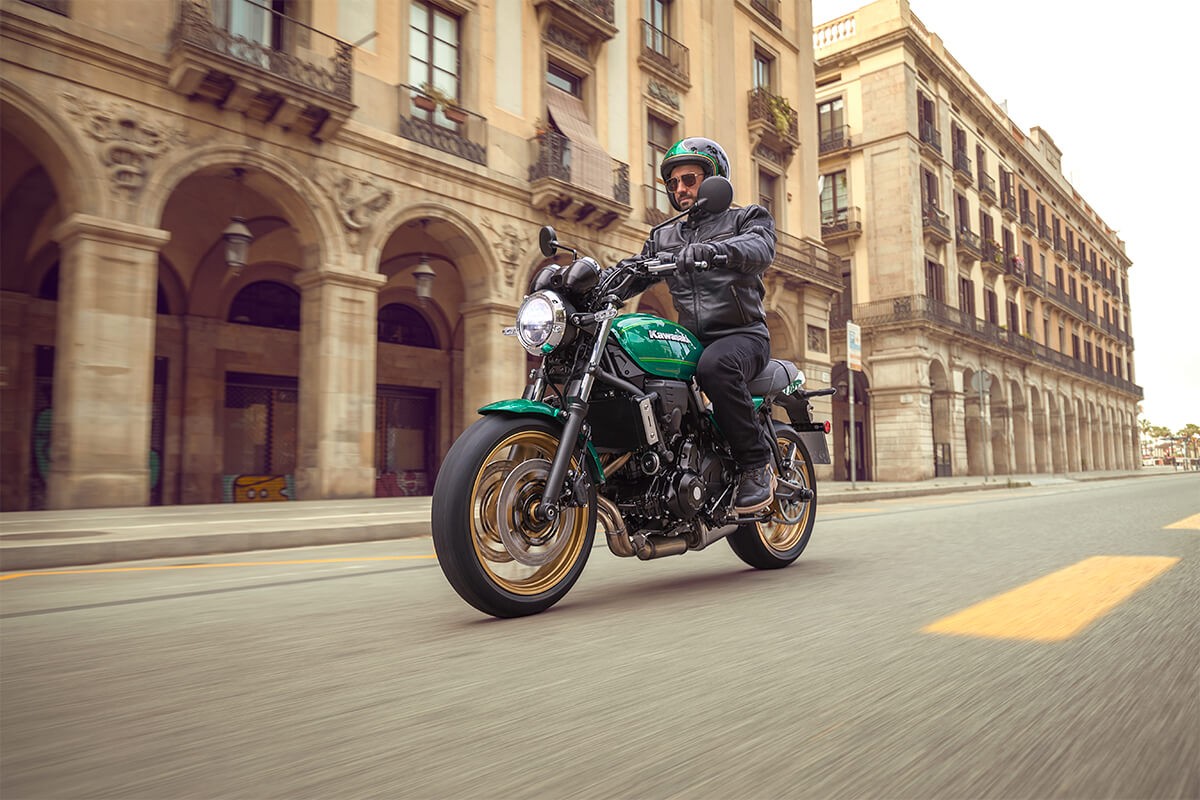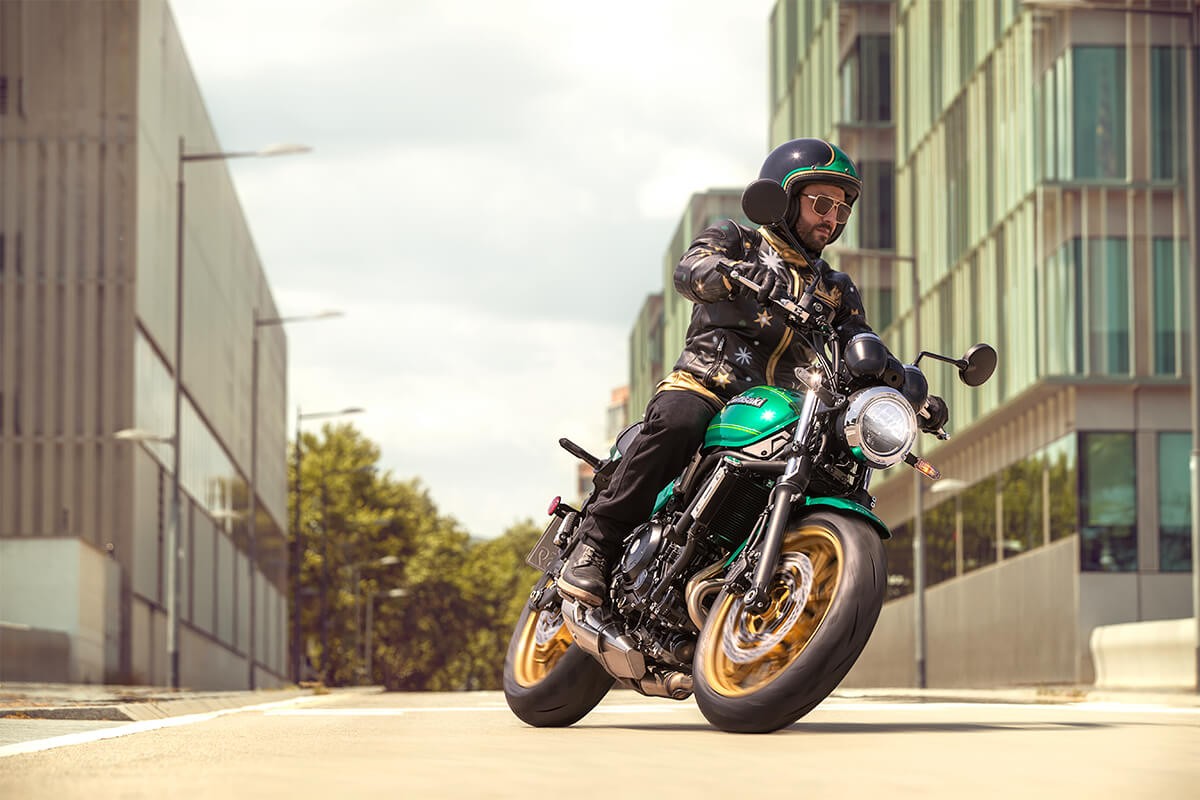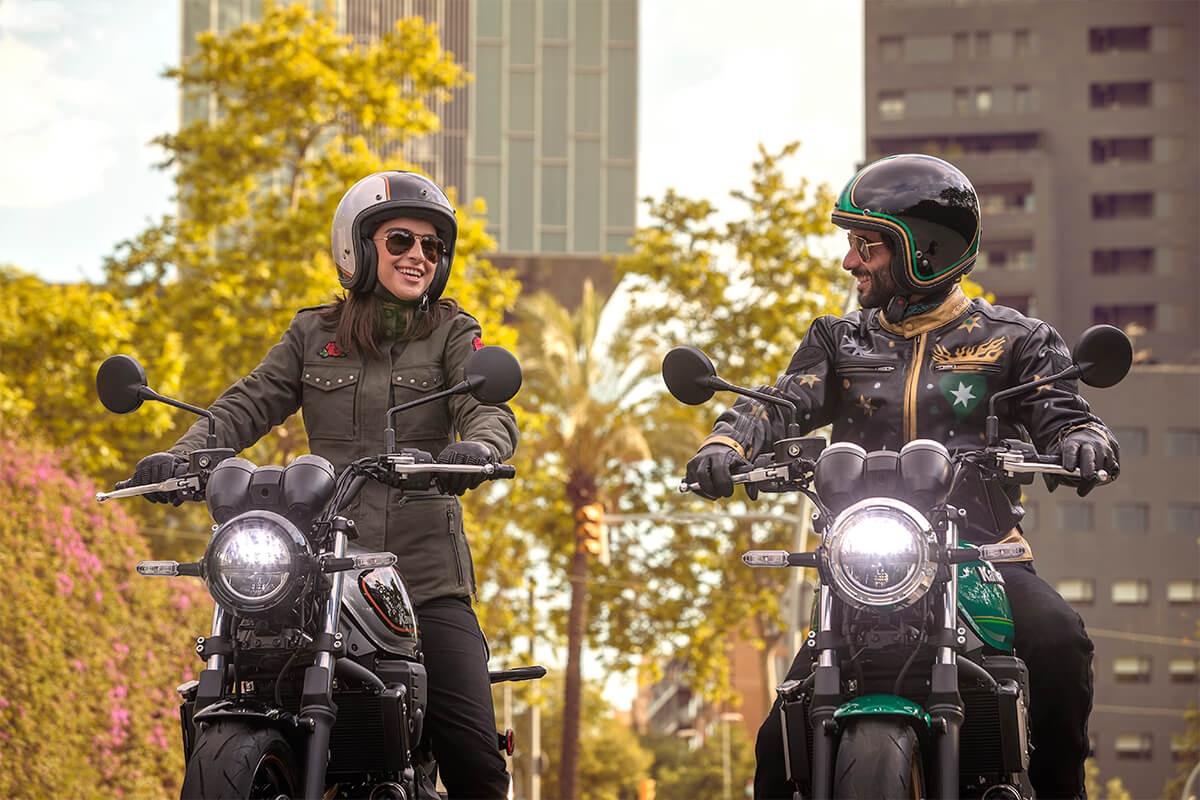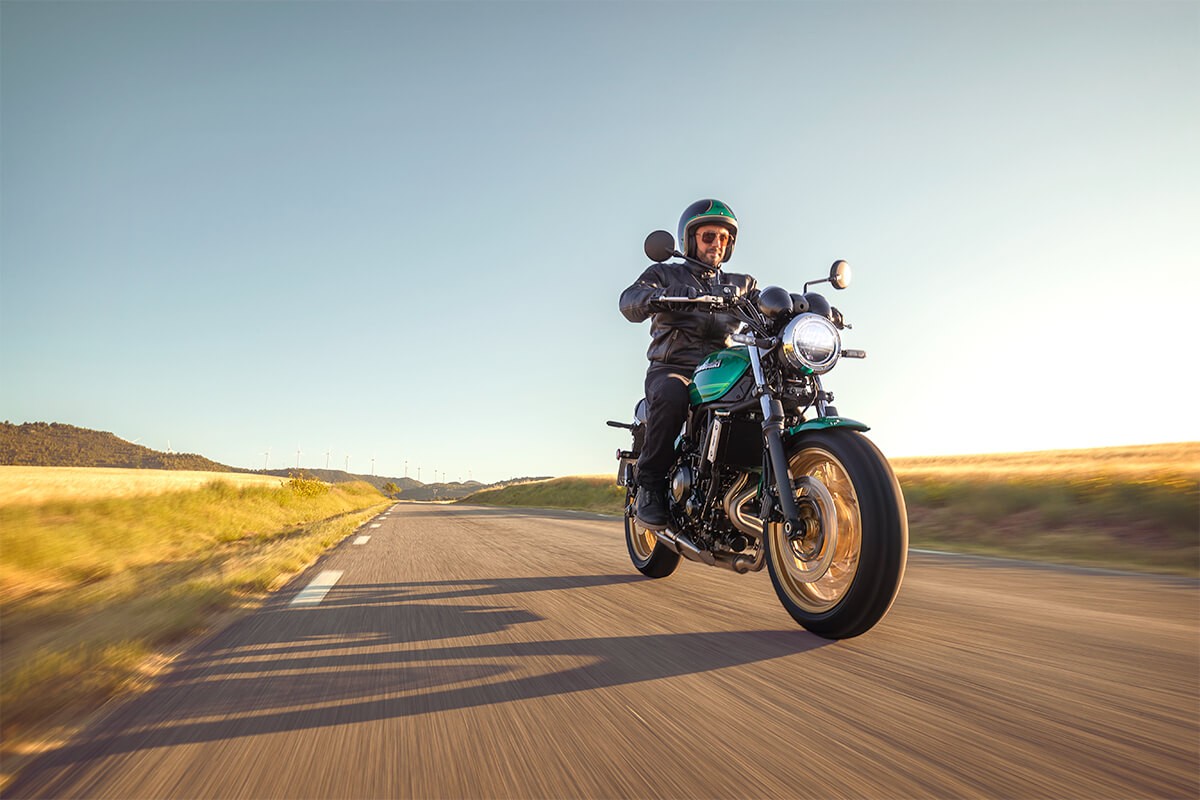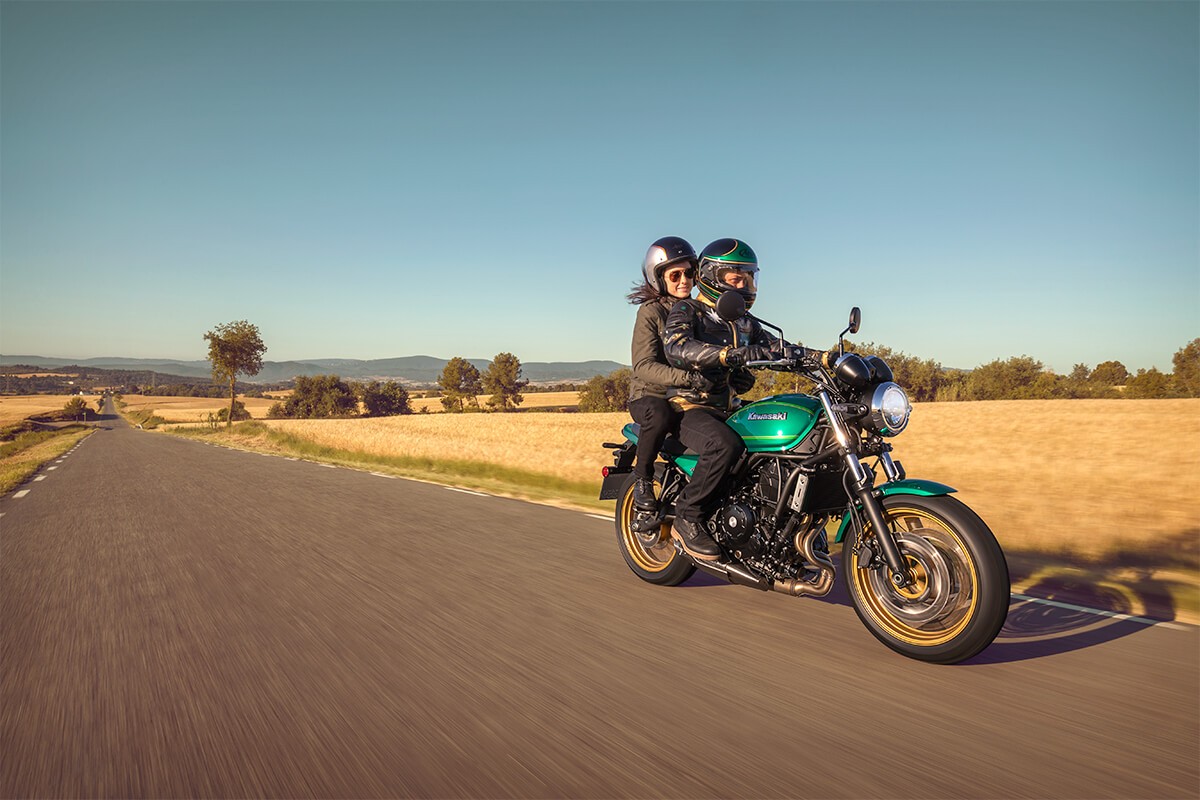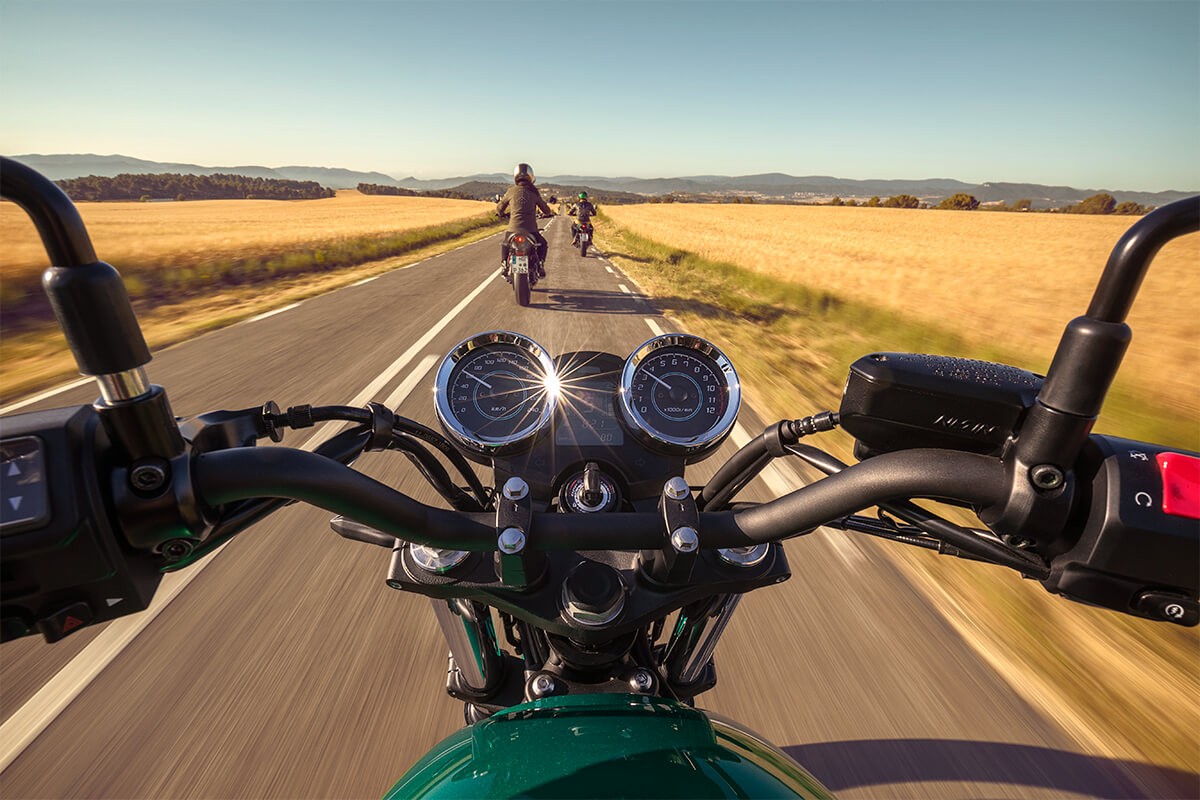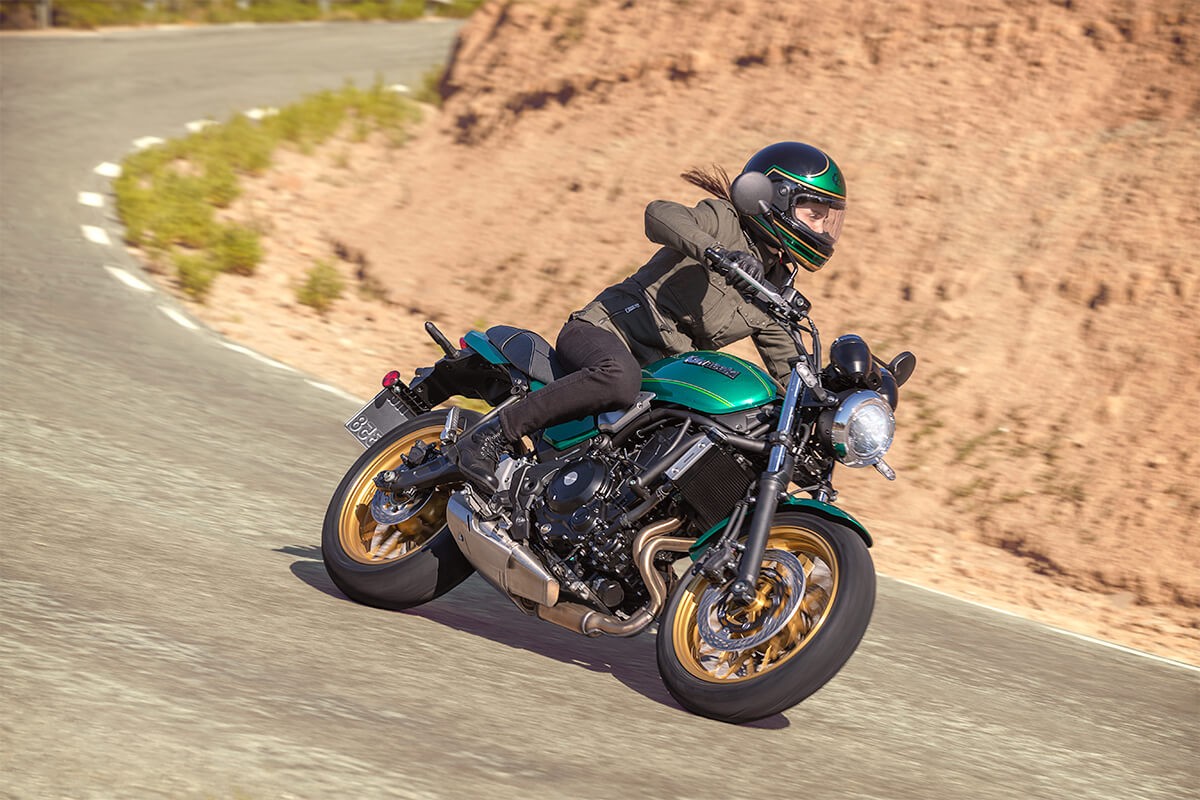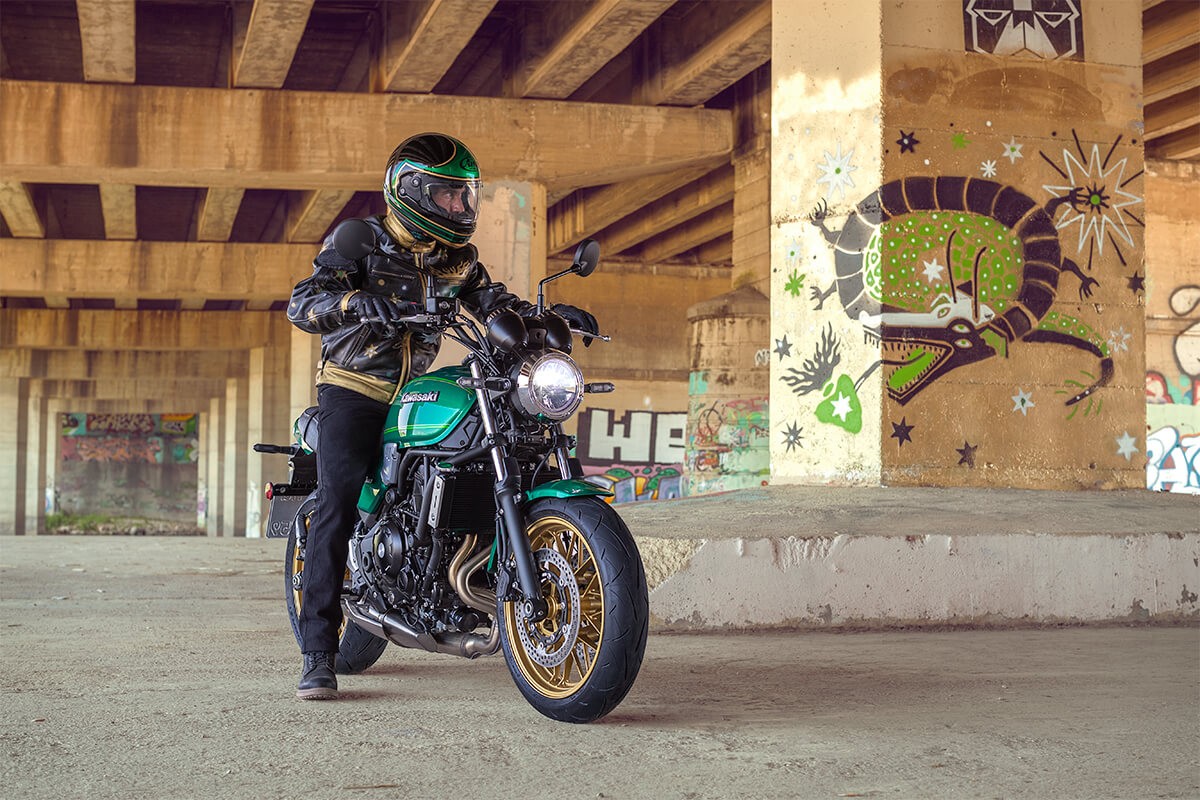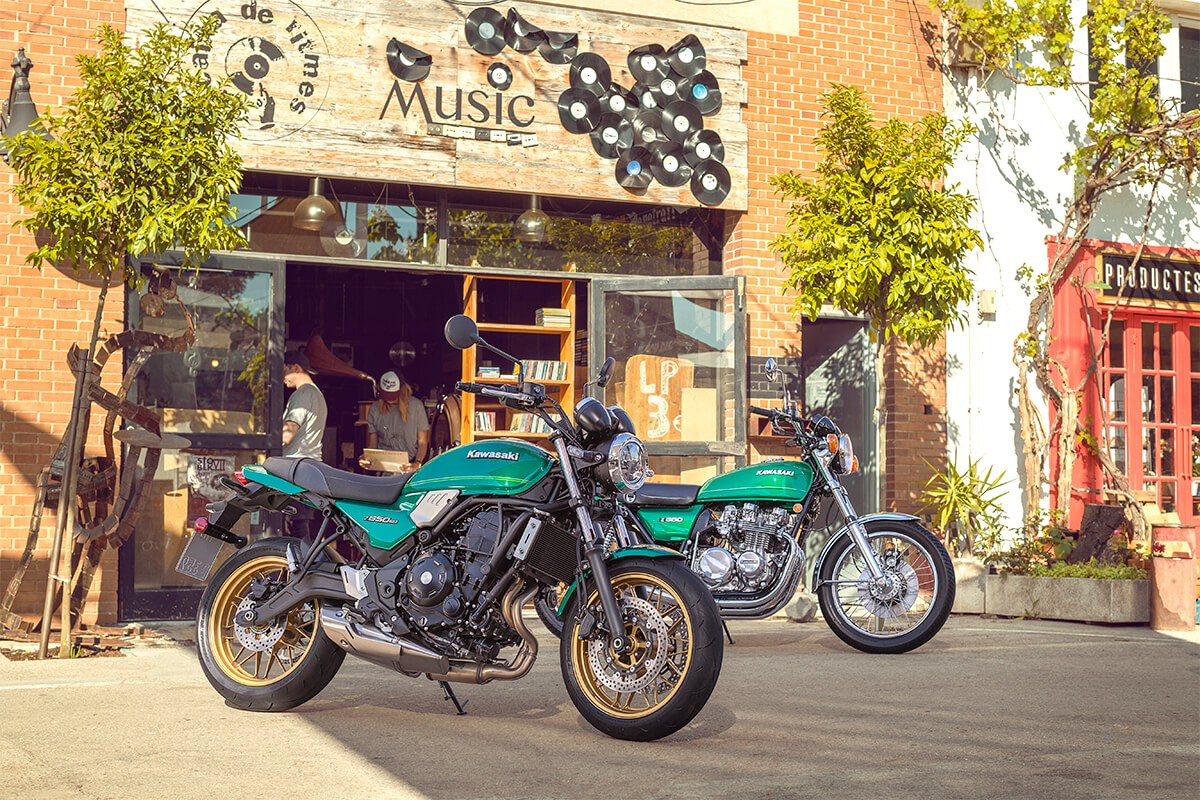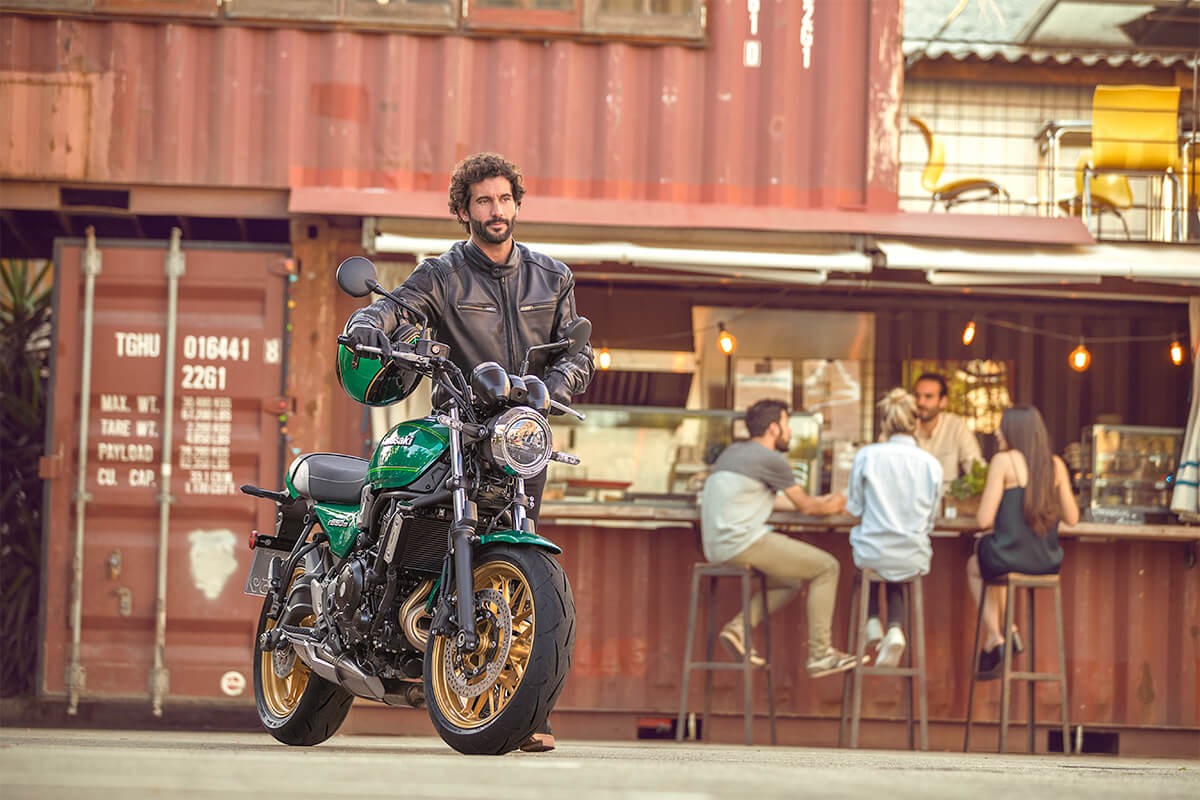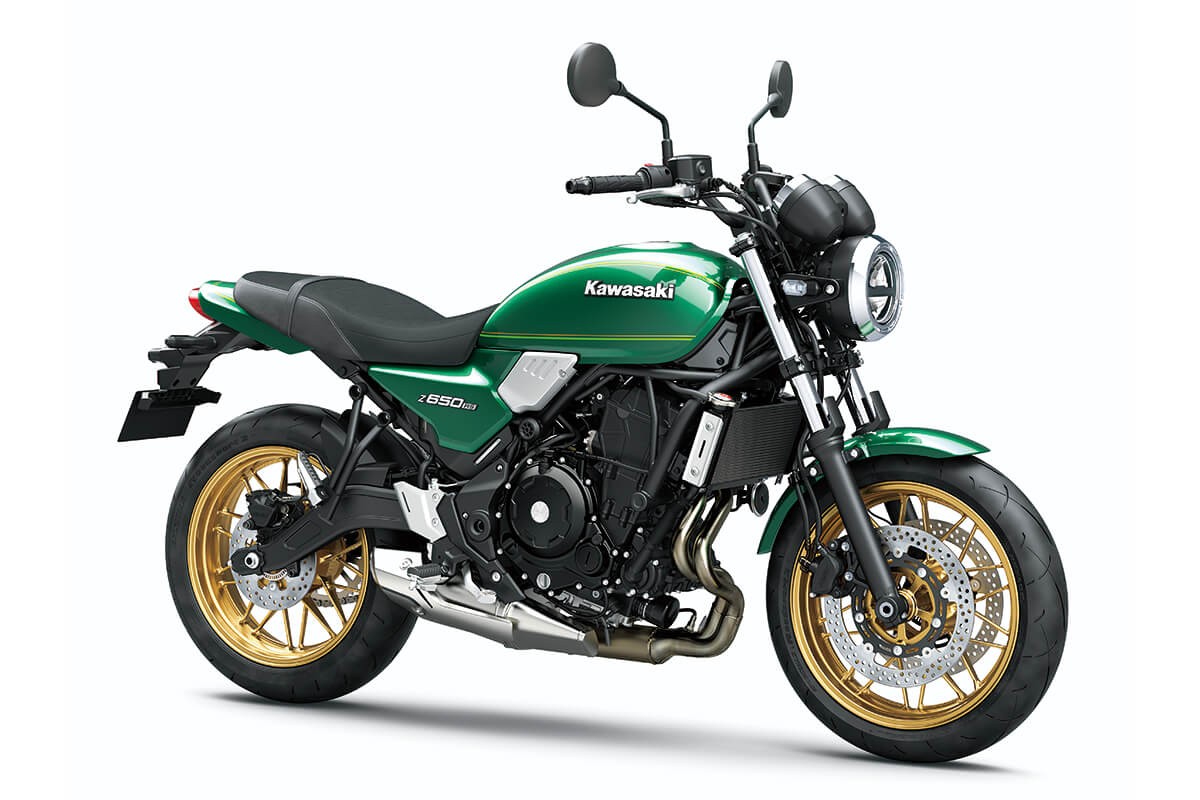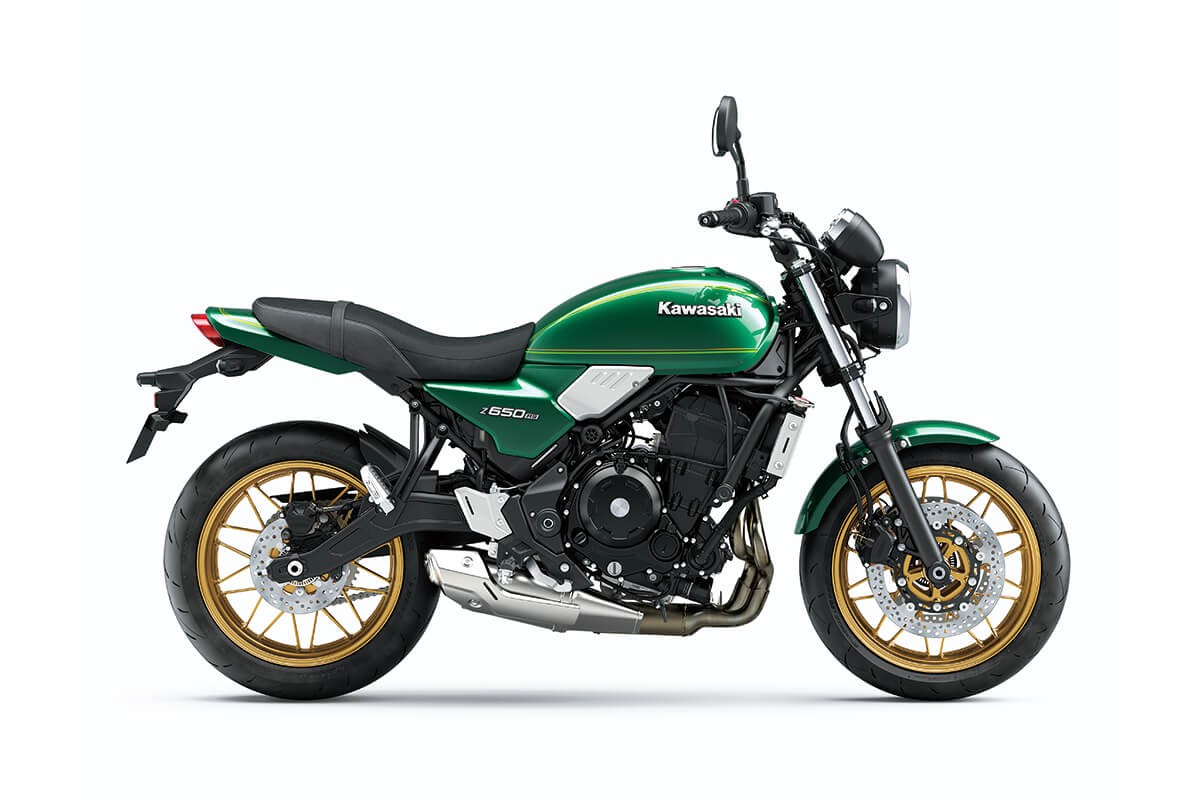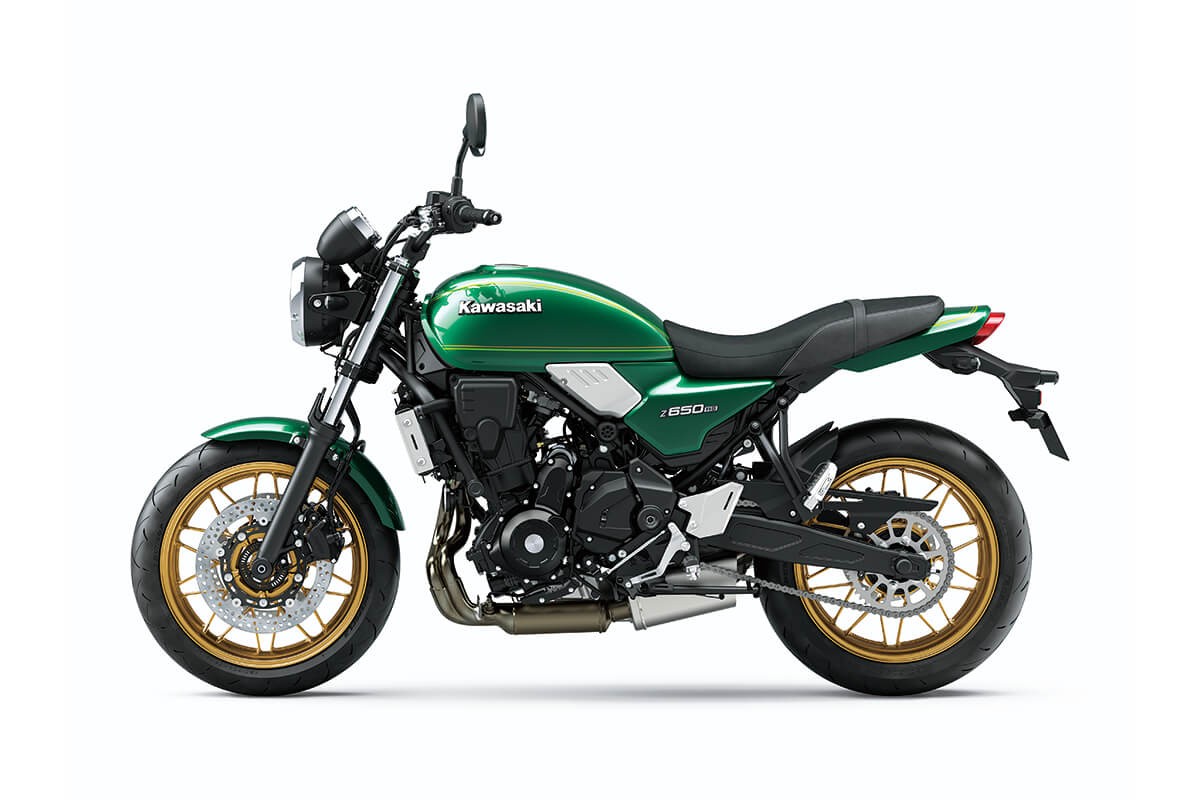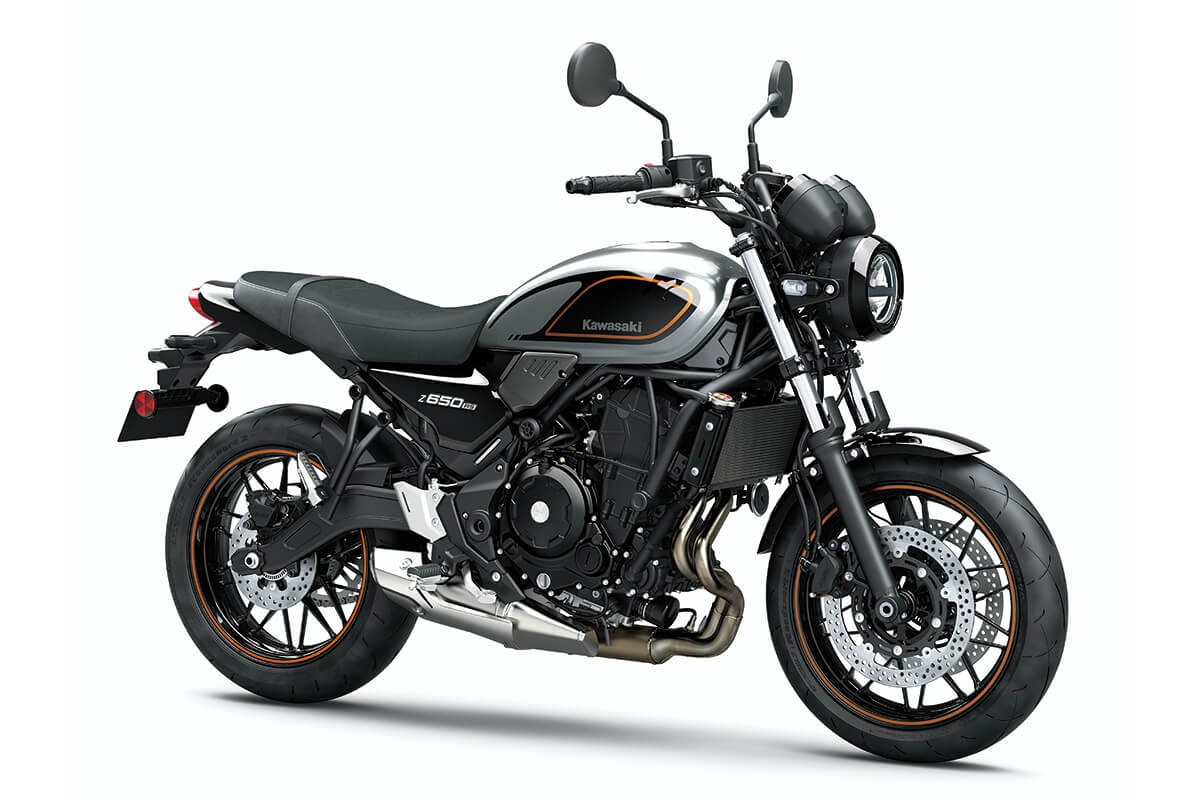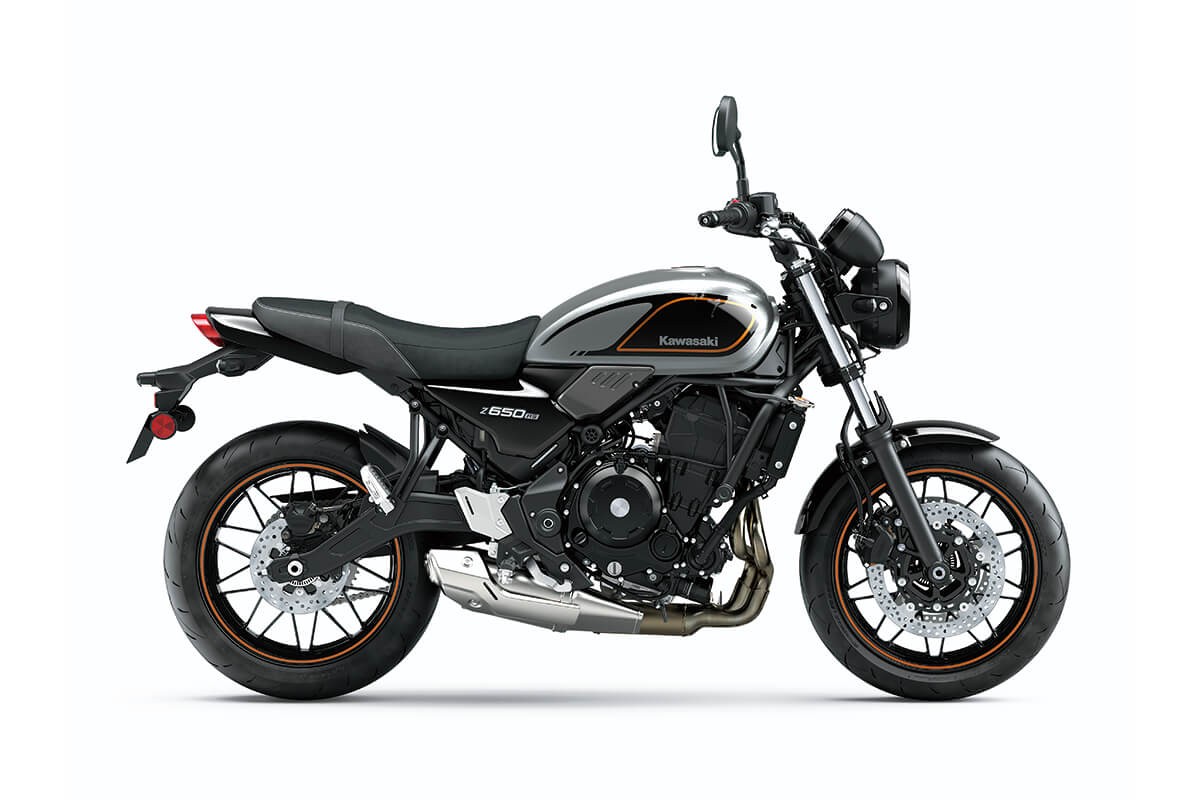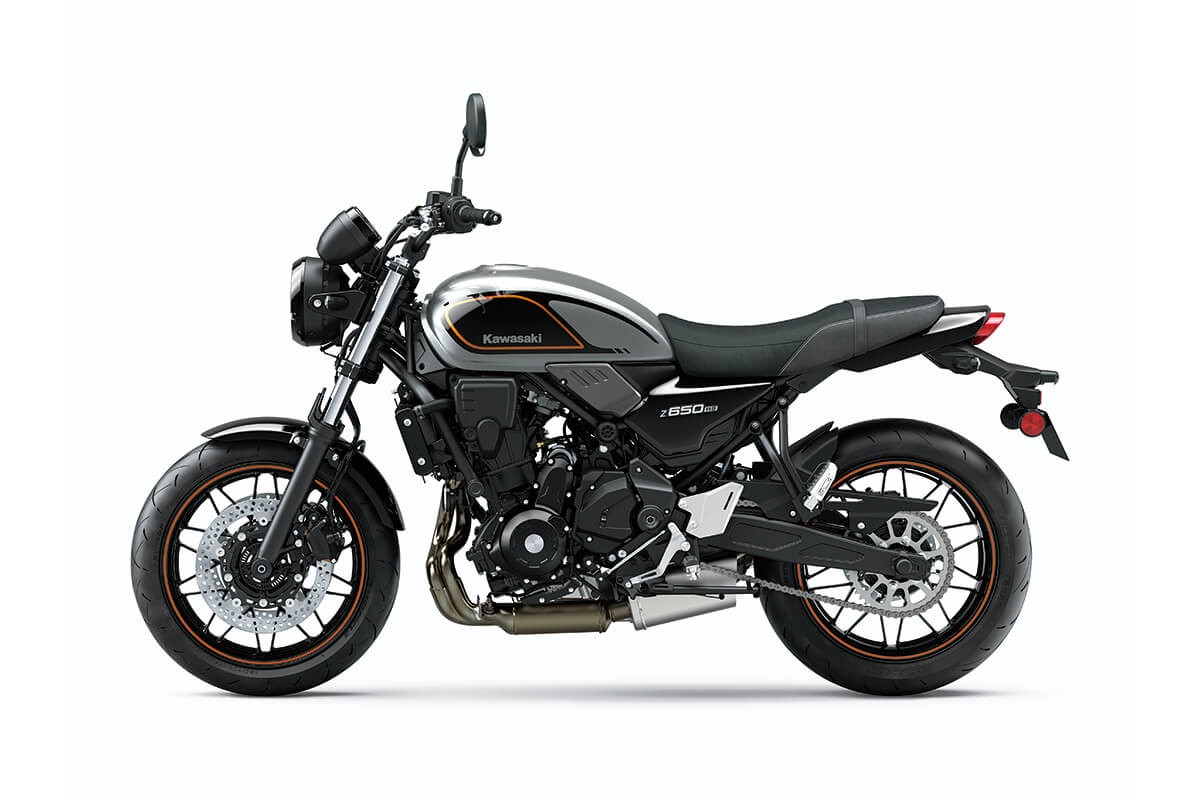The 2022 Kawasaki Z650RS: Ride Light, Ride Free
Contents
Kawasaki has always stayed on top of trends in the motorcycle world, so it should be no surprise that they decided to capitalize on the cafe racer renaissance by producing a factory-ready middleweight cafe-style naked of their own. Enter the Z650RS—a bike seemingly designed to prove that Japanese motorcycle manufacturers understand eurobikes just as well as any major British or Italian brand.
This is a brand new bike for 2022, although it draws heavily from both the Z650 and the Z900RS. It essentially takes the style and performance flourishes from the latter bike and adds them to a bike with roughly the same size and power as the former. The result? A nimble, easy-to-handle standard motorcycle that still packs enough zip to get your blood pumping.
You’ve got a 649cc parallel twin engine here, pumping out 67 hp @ 8,000 rpm and 48.5 lb-ft @ 6500 rpm. That gives you plenty of power to play with—and believe us, you’re going to want to play with this thing. Other features include horizontal back-link rear suspension for handling bumps in the road, and Kawasaki’s economical riding indicator, plus an assist & slipper clutch.
The Z650RS comes in Metallic Spark Black or Candy Emerald Green—both of which help it stand out as a classy and distinctive member of the Kawasaki motorcycle lineup for 2022. It’ll also compete handily with rivals from other brands, like the Royal Enfield Interceptor 650.
The 2022 Kawasaki Z650RS starts at $8,999 USD / $9,999 CAD.
On this page: we’ve curated specs, features, news, photos/videos, etc. so you can read up on the new 2022 Kawasaki Z650RS in one place.
Model Overview
General Info
- Price: $8,999 USD / $9,999 CAD
- Key Features:
- Retro styling with light, natural handling
- Horizontal back-link rear suspension
- Economical riding indicator
- Assist & slipper clutch
Main Specs
- Engine: 649cc parallel-twin engine
- Power: 67 hp @ 8,000 rpm
- Torque: 48.5 lb-ft @ 6,500 rpm
- Curb Weight: 412 lbs (187 kg)
- Seat Height: 31.5 in (800mm)
2022 Kawasaki Z650RS Specifications
ENGINE |
||
| Engine | 649cc, 4-stroke, 2-cylinder, DOHC, liquid-cooled | |
| Power | 67 hp | |
| Bore x Stroke | 83.0 x 60.0mm | |
| Compression Ratio |
10.8:1
|
|
| Fuel System | DFI® with Keihin 36mm throttle bodies | |
| Starter | Electric | |
| Lubrication | ||
DRIVETRAIN |
||
| Clutch | ||
| Transmission | 6-speed, Manual, Return Shift | |
| Final Drive | Sealed chain | |
CHASSIS |
||
| Suspension Front | Telescopic fork/4.9 in | |
| Suspension Rear | Horizontal back-link with adjustable spring preload/5.1 in | |
| Brakes Front | Dual 300mm discs with two-piston calipers, ABS | |
| Brakes Rear |
Single 220mm disc, ABS
|
|
| Tires Front | 120/70 ZR17 | |
| Tires Rear | 160/60 ZR17 | |
| Fuel Tank Capacity | 3.2 gal | |
| Color |
Candy Emerald Green, Metallic Moondust Gray/Ebony
|
|
ELECTRICAL |
||
| Ignition | TCBI with electronic advance | |
| Spark Plugs | ||
| Headlight | LED | |
| Tail Light | LED | |
DIMENSIONS |
||
| Overall Length | 81.3 in | |
| Overall Width | 31.5 in. | |
| Overall Height | 43.9 in | |
| Wheelbase | 55.3 in | |
| Ground Clearance | 4.9 in | |
| Seat Height | 31.5 in | |
| Curb Weight | 412.3 lb* | |
WARRANTY |
||
| Warranty | 12 Months | |
| Kawasaki Protection Plus | 12, 24, or 36 months | |
2022 Kawasaki Z650RS Features
Assist & Slipper Clutch
Under normal operation, the assist cam functions as a self-servo mechanism, pulling the clutch hub and operating plate together to compress the clutch plates. This allows the total clutch spring load to be reduced, resulting in a lighter clutch lever feel when operating the clutch.
When excessive engine braking occurs – as a result of quick downshifts (or an accidental downshift) – the slipper cam comes into play, forcing the clutch hub and operating plate apart. This relieves pressure on the clutch plates to reduce back-torque and helps prevent the rear tire from hopping and skidding. This race-style function is particularly useful when sport or track riding.
Dual Throttle Valves
On models with dual throttle valves, there are two throttle valves per cylinder: in addition to the main valves, which are physically linked to the throttle grip and controlled by the rider, a second set of valves, opened and closed by the ECU, precisely regulates intake airflow to ensure a natural, linear response. With the air passing through the throttle bodies becoming smoother, combustion efficiency is improved and power is increased.
Economical Riding Indicator
While effective vehicle speed and engine speed may vary by model, paying attention to conditions that cause the “ECO” mark to appear can help riders improve their fuel efficiency – a handy way to increase cruising range. Further, keeping fuel consumption low also helps minimize negative impact on the environment.
ABS (Anti-lock Brake System)
Horizontal Back-link Rear Suspension
2022 Kawasaki Z650RS Photos
2022 Kawasaki Z650RS Videos
New 2022 Kawasaki Z650RS First Ride Review!
Kawasaki Z650RS 2022 Review | New Kawasaki Z650 RS Road Test in Marseille | Visordown.com
Links
Kawasaki Official Websites


